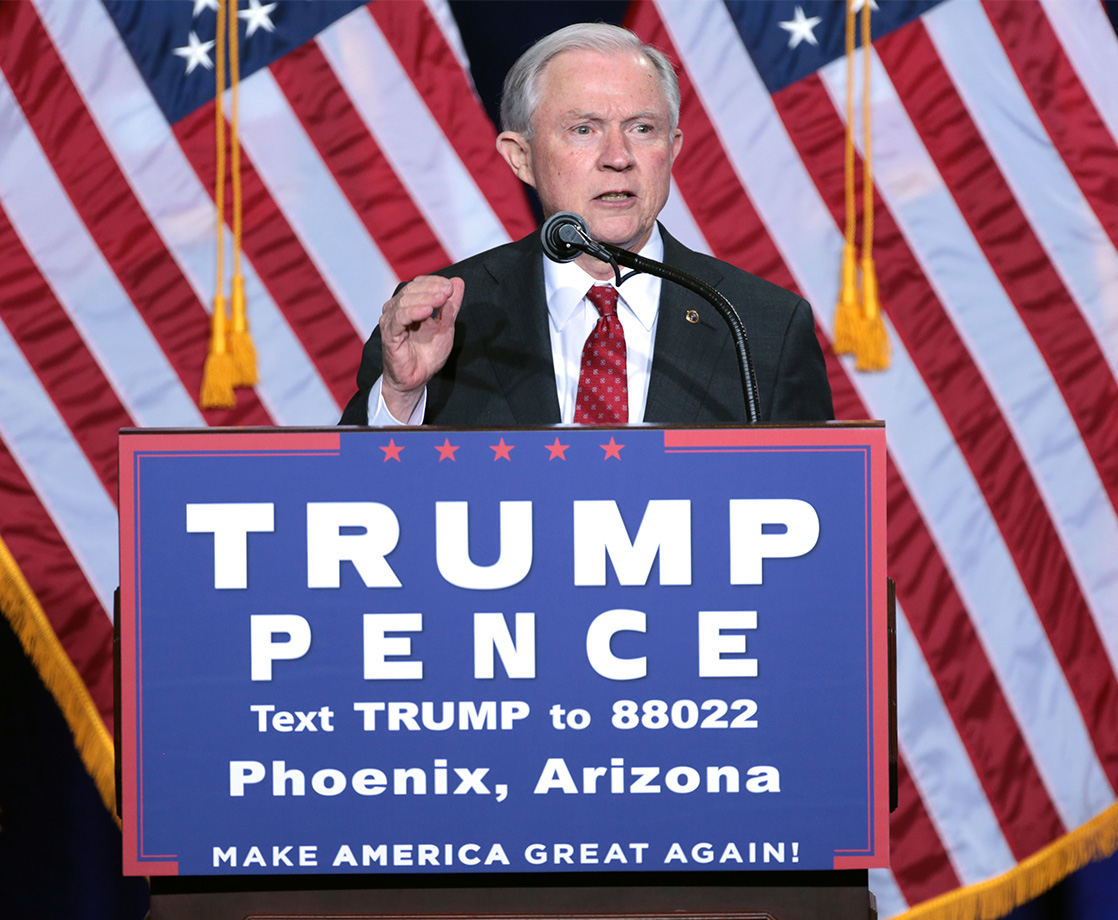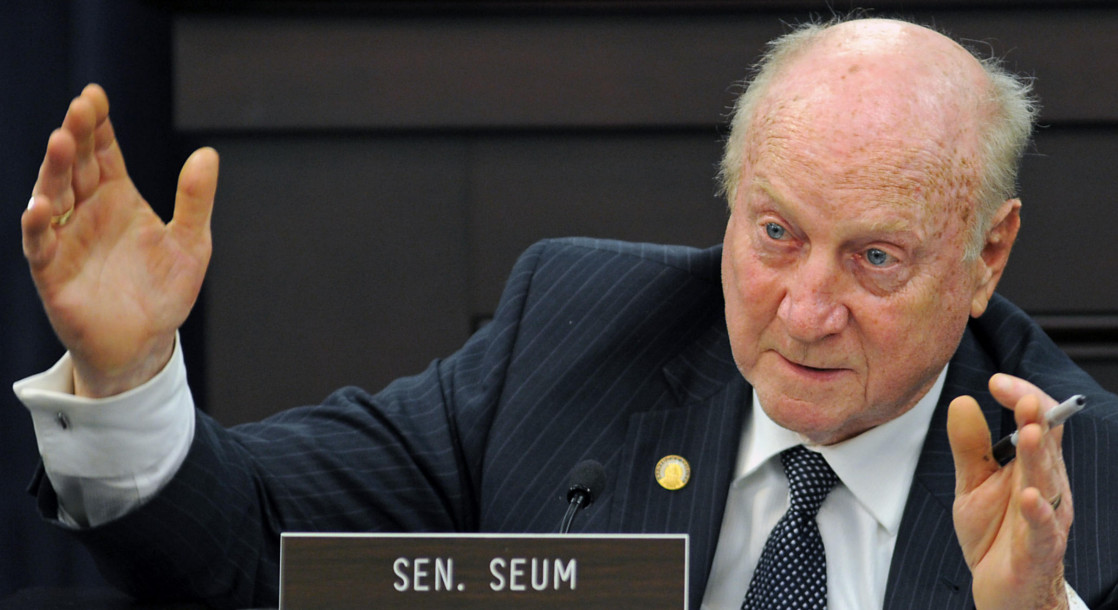After almost a year of threatening to crack down on state-legal cannabis, U.S. Attorney General Jeff Sessions finally told Congress that the Obama administration's cannabis policy is still in effect. Sessions was brought before the House Judiciary Committee this Tuesday to answer more questions relating to Russian contacts with the Trump administration, but Senators took a break from Russia to clarify the Justice Department's intent to prosecute canna-legal states.
Earlier this year, Sessions sent a letter to several Congress members, urging them not to support the Rohrabacher-Farr amendment, a federal budget rider that defunds any attempts by federal law enforcement to prosecute state-legal cannabis users or businesses. At the hearing, Sessions noted that the Justice Department is still bound by this rider. "Our policy is the same, really, fundamentally as the Holder-Lynch policy, which is that the federal law remains in effect and a state can legalize marijuana for its law enforcement purposes but it still remains illegal with regard to federal purposes," Sessions said in response to a question from Rep. Steve Chabot.
Tennessee Rep. Steve Cohen also grilled the Attorney General over his constant anti-cannabis rhetoric. In a speech this March, Sessions said that he was "astonished to hear people suggest that we can solve our heroin crisis by legalizing marijuana — so people can trade one life-wrecking dependency for another that's only slightly less awful." At the hearing this week, Cohen asked Sessions whether he agreed that marijuana was less dangerous than heroin. "I think that's correct," Sessions conceded.
Cohen pressed on with his line of questioning, bringing up a comment from 2016 when Sessions said that the U.S. government needed to send a "message with clarity that good people don't smoke marijuana." Cohen brought up several Republican politicians who have admitted to smoking weed, including former President George W. Bush, Supreme Court Justice Clarence Thomas, John Kasich, and George Pataki. "Which of these people would you say are not good people?" Cohen asked. Sessions deflected the question by suggesting that his comment was taken out of context.











